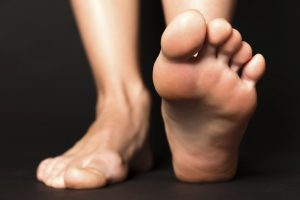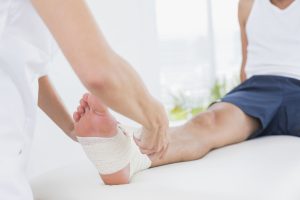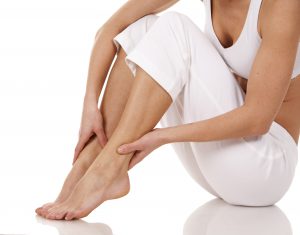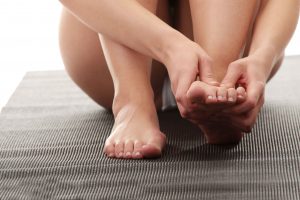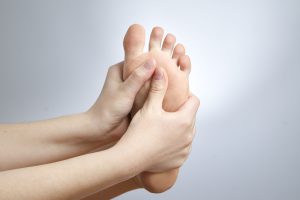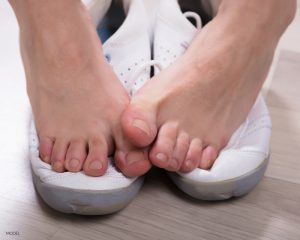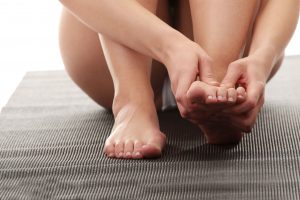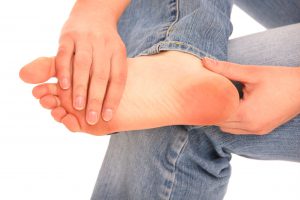Medically Reviewed by Dr. Rachel N. Verville
September 16, 2019
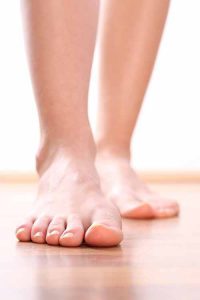 The Achilles tendon is the strongest tendon in our bodies. This tendon is what actually gives us the strength to walk. But because it’s used with every step we take, it can also be easily injured, making walking almost impossible.
The Achilles tendon is the strongest tendon in our bodies. This tendon is what actually gives us the strength to walk. But because it’s used with every step we take, it can also be easily injured, making walking almost impossible.
Achilles tendonitis is a condition in which the overuse of the Achilles tendon results in injury for Frisco area patients. Common causes of this condition include:
- Running too hard
- Running uphill or climbing stairs
- Playing sports that require quick starts and stops, such as baseball, tennis, and track races
- Exercising before you stretch properly
- Having flat feet
- Constantly wearing improper shoes that don’t have adequate support for your feet
- Having a medical history of a previous injury to the Achilles tendon
While Achilles tendonitis is known for its telltale discomfort in the heel, you shouldn’t jump to conclusions and self-diagnose. Rather, Frisco patients who suspect an injury in their Achilles tendon should see Dr. Verville at RNV Podiatry for a complete examination, diagnosis, and creation of a treatment plan.
Here are 5 symptoms of Achilles tendonitis that’ll tell you it’s time to visit Dr. Verville:
- Soreness above the heel bone
The Achilles tendon runs up from the heel bone to the lower calf. If you’re feeling soreness in that area – especially in or above the heel – it’s a sign that you need to be evaluated by Frisco podiatrist Dr. Verville for Achilles tendonitis.
- A stiff, slow, or weak lower leg
Since this tendon gives us the power to walk, run, and exercise, any injury to it will make these activities more difficult, if not altogether impossible, to perform. If your lower leg feels stiff, slow to move or react, or just weak in general, it could be a sign that you have Achilles tendonitis.
- Discomfort that increases when running or climbing stairs
Because the Achilles tendon helps us run and climb stairs, doing so while you have Achilles tendonitis will be harder and more uncomfortable. If these activities are irritating you, see Dr. Verville immediately for a proper diagnosis.
- Swelling of or formation of a bump in the area where the tendon lies
Healthy tendons don’t swell. But if you notice swelling between your heel and lower calf, or if a bump forms in that area, it’s likely a sign that you have Achilles tendonitis.
- Stiff discomfort in the back of the leg that worsens after running or exercising
Injuries to this tendon are often associated with a feeling of stiffness. If the back of your lower leg starts to feel stiff while you’re running or exercising – and only gets worse after you stop activity – you need to see Frisco podiatrist Dr. Verville right away.
The Importance of Getting a Proper Diagnosis – And Not Just Trusting “Dr. Google”
Dr. Verville understands that Frisco residents are very web savvy, and oftentimes turn to the Internet to type in their symptoms and self-diagnosis the injury they’re experiencing. This is never a good idea, and it’s especially unwise to do if you suspect Achilles tendonitis.
Healing Achilles tendonitis depends on the severity of your injury. While some patients can recover with rest followed by stretching exercises, others need the assistance of orthotic devices and sometimes even surgery to repair their tendon. It’s important that you get a proper diagnosis at RNV Podiatry to rule out the need for any of these advanced treatment procedures.
Scheduling an appointment with Dr. Verville is easy. Simply call her practice, RNV Podiatry, today at (214) 385-8822.



